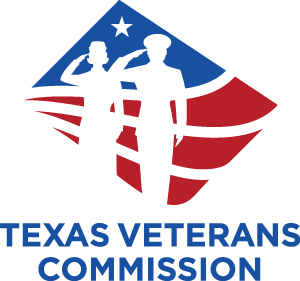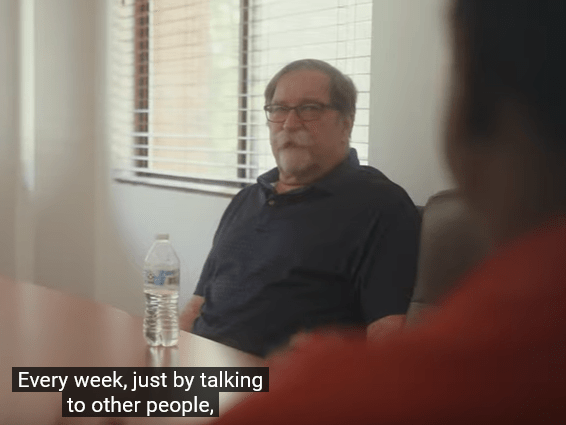Many veterans may find themselves questioning the significance of their service or whether the sacrifices they made were worth it. They may also experience heightened moral distress related to their experiences during service. These feelings are common and understandable. It can be helpful to discuss these feelings with loved ones, reach out to fellow veterans, connect with peer support groups, or seek mental health services. Below is a list of common reactions and coping strategies to consider.
Common Reactions to current events in Afghanistan
Veterans may:
- Feel frustrated, sad, helpless, grief, or distressed.
- Feel angry or betrayed.
- Experience an increase in mental health symptoms like symptoms of PTSD or depression.
- Sleep poorly, drink more, and/or use more drugs.
- Try to avoid all reminders in the media or shy away from social situations.
- Have more military and homecoming memories.
- May feel like they need to expect and/or prepare for the worst. For example, they may:
- Become overly protective, vigilant, and guarded.
- Become preoccupied by danger.
- Feel a need to avoid being shocked by, or unprepared for, what may happen in the future.
Experiencing distress is a common response to unfavorable occurrences, particularly those that seem to affect you personally. Permitting yourself to experience these emotions instead of trying to suppress them can prove beneficial. Typically, these feelings will subside on their own. However, if they persist or become overwhelming, the following recommendations may be useful.
Strategies for Managing Ongoing Distress
Right now, it may feel like everything is hopeless and that your efforts or sacrifices were in vain. Take a moment to reflect on the positive impact your service had on others’ lives, as well as your own. It’s important to remember that this moment is temporary, and that change is inevitable.
Focusing on the present and engaging in activities that hold value and significance to you can be beneficial. Is there something important that you can accomplish today, whether it be as an individual, family member, parent, or community member? Perhaps it’s something related to your job or spirituality? While engaging in such activities will not alter the past or things beyond your control, they can help alleviate stress and bring meaning to life.
Sometimes, it’s useful to reflect on your thought patterns and ask if they’re serving you well in the present moment. Are there ways you could adjust your thinking to make it more accurate and less upsetting? For instance, are you prone to extremes, either seeing things as entirely positive or negative? If this is the case, try to find a more balanced perspective. Instead of thinking “my time in Afghanistan was a complete waste,” consider “I contributed to making Afghanistan a safer place.”
In addition, it’s worth exploring some broader coping techniques that you may find useful, such as:
- Engage in Positive Activities. Engage in positive, healthy, or meaningful activities, no matter how small or simple they may seem. Pursuing activities that are rewarding, enjoyable, or have significance can uplift your mood, even if you do not feel like it initially.
- Stay Connected. It’s important to surround yourself with individuals who bring you feelings of comfort, peace, and joy, or those who can empathize with your current situation.
- Practice Good Self Care. It’s important to find positive coping strategies to manage your emotions. Some helpful techniques include listening to music, exercising, practicing breathing exercises, spending time outdoors or with animals, journaling, or reading uplifting texts. These simple activities can assist in managing overwhelming or distressing emotions.
- Stick to Your Routines. Following a schedule for sleeping, eating, working, and other daily activities can be beneficial.
- Limit Media Exposure. If the news is causing you distress, it may be helpful to limit the amount you consume.
- Use a Mobile App. Consider one of VA’s self-help apps (see https://www.ptsd.va.gov/appvid/mobile/) such as PTSD Coach which provides useful tools to manage common emotional responses such as stress, sadness, and anxiety. Moreover, you can keep track of your symptoms over a period of time.
- PTSD Coach Online. A series of online video coaches will guide you through 17 tools to help you manage stress. PTSD Coach Online is used on a computer, rather than a mobile device, and therefore can offer tools that involve writing.
By creating your own methods of adjusting to ever-changing circumstances, you can enhance your ability to tackle obstacles, find a deeper sense of significance, and become a mentor to others in comparable situations.
RESOURCES AVAILABLE RIGHT NOW
- Veterans Crisis Line – If you are having thoughts of suicide, call 1-800-273-8255, then PRESS 1 or visit http://www.veteranscrisisline.net/
- For emergency mental health care, you can also go directly to your local VA medical center 24/7 regardless of your discharge status or enrollment in other VA health care.
- Vet Centers – Discuss how you feel with other Veterans in these community-based counseling centers. 70% of Vet Center staff are Veterans. Call 1-877-927-8387 or find one near you.
- VA Mental Health Services Guide – This guide will help you sign up and access mental health services.
- MakeTheConnection.Net – information, resources, and Veteran to Veteran videos for challenging life events and experiences with mental health issues.
- RallyPoint – Talk to other Veterans online. Discuss: What are your feelings as the Taliban reclaim Afghanistan after 20 years of US involvement?
- Download VA’s self-help apps – Tools to help deal with common reactions like stress, sadness, and anxiety. You can also track your symptoms over time.
- Tragedy Assistance Program for Survivors (TAPS) – Request a Peer Mentor.
- VA Women Veterans Call Center – Call or text 1-855-829-6636 (M-F 8AM – 10PM & SAT 8AM – 6:30PM ET).
- VA Caregiver Support Line – Call 1-855-260-3274 (M-F 8AM – 10PM & SAT 8AM – 5PM ET).
- Together We Served –Find your battle buddies through unit pages.
- George W. Bush Institute Wellness Alliance– Need help or want to talk? Check-In or call:1-630-522-4904 or email: mailto:checkin@veteranwellnessalliance.org.
- Elizabeth Dole Foundation Hidden Heroes – Join the Community.
- American Red Cross Military Veteran Caregiver Network – Peer Support and Mentoring.
- Team Red, White & Blue – Hundreds of events weekly. Find a chapter in your area.
- Student Veterans of America – Find a campus chapter to connect with.
- Team Rubicon – Find a local support squad.
- Afghanistan: How Veterans can reconcile service.
- Afghanistan: How Veterans can learn from Vietnam Veterans.





